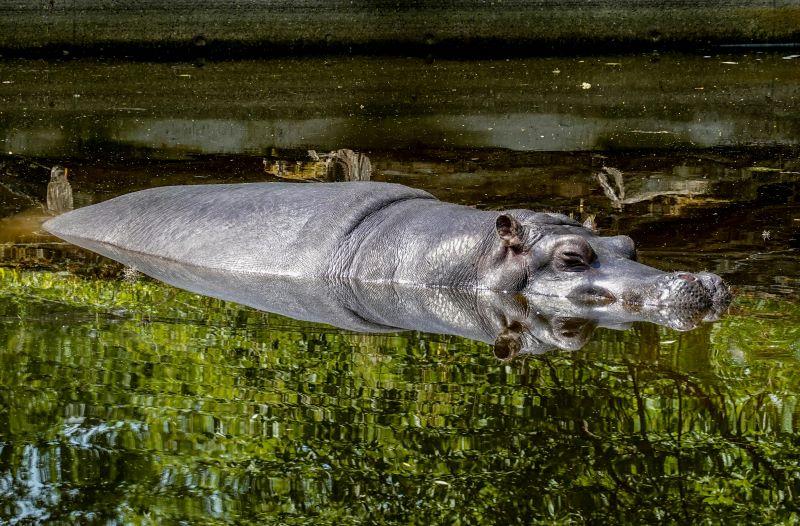As hunters search for more dangerous hunts to challenge themselves, they inevitably end up with hippo hunting as an option. But how dangerous can this barrel-shaped mammal on four little stubby legs be? Let’s say the answer might surprise you.
The knowledge that hippos are responsible for more human deaths in Africa than any other animal, including the notorious Nile crocodile and the African lion, will have you either running for the hills or heading to Mozambique, for the hippo hunting adventure of a lifetime!
[DYNAMIC-BLOGTABLEOFCONTENT]
Why Choose Mozambique as a Hippo Hunting Destination?
Mozambique is a somewhat underrated hunting destination offering hunters some of Africa’s best big game and dangerous game hunting adventures. Six of Africa’s Dangerous 7 are available to hunt, with the exclusion of the rhino. Other big game available species include the kudu, waterbuck, and Livingston eland, to name but a few. Hunters are spoilt for choice with a diverse range of hunting opportunities available to them.
Mozambique allows a hunter to experience the “Africa of old,” with remote hunting grounds that bring home the raw nature of what hunting is about, experiencing nature and the outdoors at its best. Having said that, know that African outfitters are some of the best worldwide, and Mozambican outfitters are no exception. Expect friendly staff, a welcoming camp, and a never-to-be-forgotten hunting safari experience that will have you returning for more. And, of course, the drawcard….it has some of the best locations to hunt hippos in Africa!
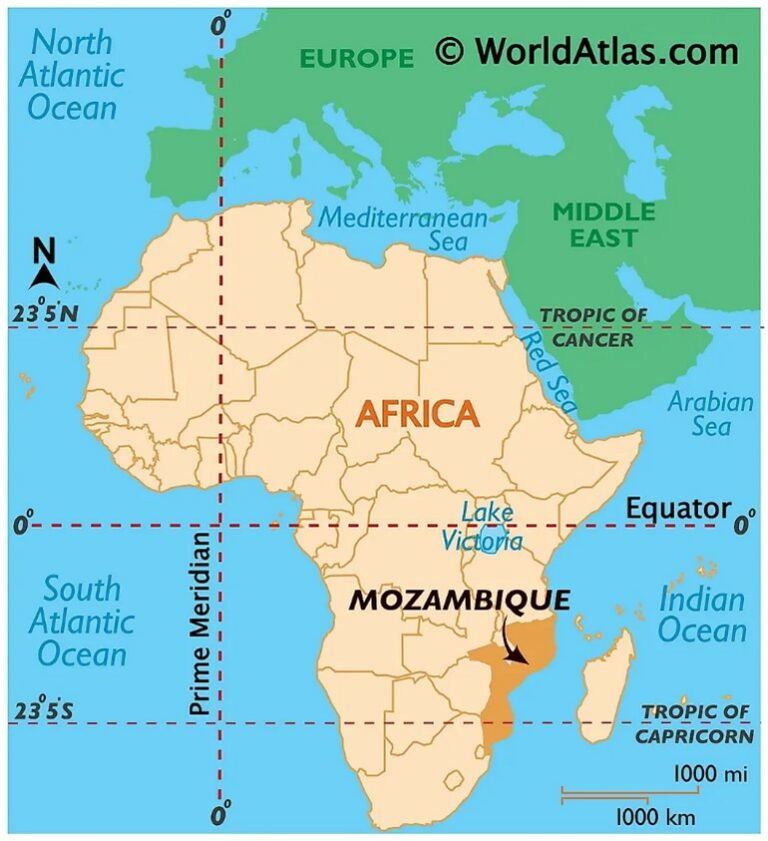
Hunting in Mozambique
Game hunting in Mozambique takes place in specific hunting concessions that have been set aside for sports hunting, called “coutadas.” The protected areas of Mozambique, known as conservation areas are categorized as national parks, national reserves, forest reserves, community conservation areas, wildlife utilization areas known as coutadas, and a few private game hunting farms.
Mozambique consists of:
- 6 national parks,
- 8 reserves
- 13 coutadas.
There are six main regions to visit when hunting in Mozambique:
- Marromeu Complex
- Gorongoza / Zambezi River Region
- Niassa Reserve
- Cohora Bassa
- The Greater Labombo Conservancy
- Marangira Region
Each region is renowned for specific species and offers hunters an array of game hunting opportunities to suit their hunting objectives. Chat with your African outfitter about your particular hunting requirements.
Why is Hippo Hunting Popular?
Hippos have always been a challenging mammal, and are renowned for their aggressive and territorial behavior, but let’s be honest, how many of us would have said that they were, in fact, even more of a threat to humans than the cold-blooded, razor-toothed Nile crocodile? Admittedly, not me.
Hippos (Hippopotamus amphibious) is rated as one of Africa’s seven most dangerous hunting safari targets. Known as the Dangerous 7, these animals are seen as the most challenging, and dangerous, to hunt. With other members of the Dangerous 7 including the Nile crocodile, rhino, Cape buffalo, elephant, leopard, and lion, the hippo is in good company, with each member offering hunters a unique hunting adventure with its own set of challenges and rewards.
The thrill of hunting hippos cannot be dispelled, taking down a 9,000-pound water horse whose main intent is to eradicate you from the face of the earth is a feeling that is not easily translated onto paper. “Euphoric” would be a choice adjective, while “grateful to be alive!” might be another apt phrase!
Traditionally, hippo hunts were undertaken for meat and ivory, while troublesome animals were also targeted for a safer environment. While hippos are still prevalent in more than 34 African countries, their numbers in 18 are declining, with the IUCN listing the hippo as vulnerable.
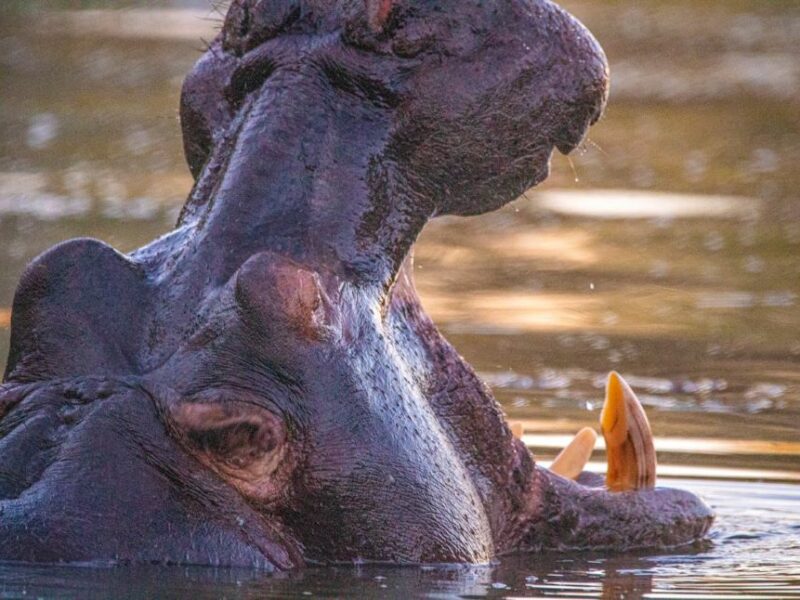
The Hippo
Facts
- The hippo is the second largest land animal.
- They are herbivores and live in herds.
- It is often referred to as a “water horse” that refers to the amount of time it spends submerged in water.
- Hippos are semi-aquatic animals.
- Hippos have sensitive skin and keep it hydrated and free from the heat of the unforgiving African sun by spending up to 16 hours a day in the water or wallowing in mud.
- Their habitats include rivers, swamps, lakes, estuaries, and other bodies of water.
- Their range includes sub-Saharan Africa and they inhabit Tanzania, Kenya, Zambia, Zimbabwe, Namibia, Mozambique, South Africa, and Uganda but their range is diminishing.
- Hippos are strong swimmers who can stay underwater for up to five minutes before resurfacing for air. This is especially handy when they are trying to escape from a predator.
- Their upper incisors and lower canine teeth (tusks) never stop growing.
How Large is a Hippo?
Hippos reach up to 9,000 pounds for a male specimen and around 6,500 pounds for a female hippo. They have a round, barrel-like body with short stubby legs and a grey-brown body.
Hippo Habitats
Hippos are found throughout sub-Saharan Africa and require a habitat that not only has access to a body of water but also one where there are readily grass and grazing options available. Habitats include deltas, rivers, lakes, dams, and swamps. Hippos are more active at night and leave the safety of the water to graze and feed.
The water should be deep enough to allow complete submersion, but shallow enough to allow easy wallowing and protection from the harsh sun. A good habitat would also provide protection from predators, such as lions, hyenas, and crocodiles, who tend to target hippo calves.
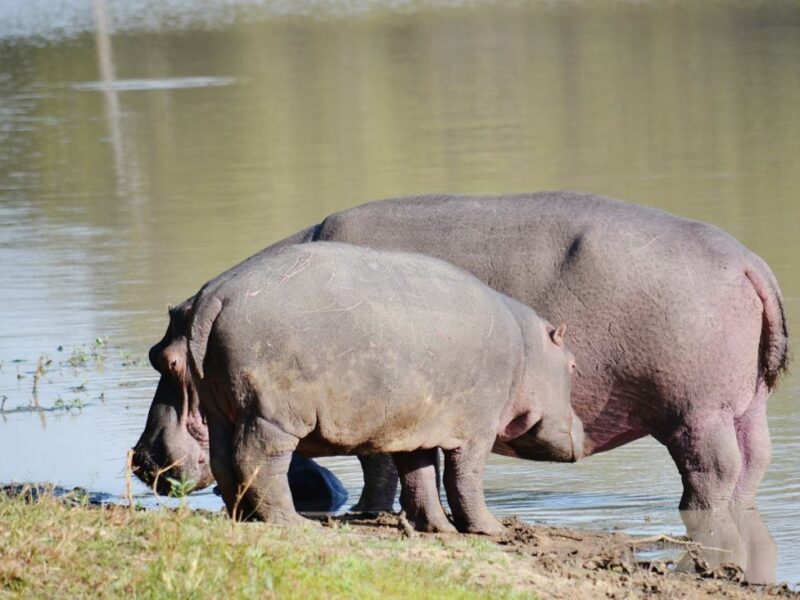
What Makes A Good Hippo Game Hunting Trophy?
For hunters, a hippo hunting trophy generally considers two factors: The size of the bull, and the canine teeth (tusks), that can grow up to
one foot long. After some searching and ensuring that you are targeting a male hippo and not a female of the species, you may find your massive bull, but he may be missing a tusk. This is the reality of hippo hunting in Africa, and could easily occur due to fighting, either in defence or fighting for dominance over food or a mate.
But, aside from the size of the bull that you want to mount, according to SCI and Rowland Ward standards, it is all about the tusks and the length thereof.
Male Or Female?
While on a hippo hunt, you may find it difficult to differentiate between a male and a female hippo, especially if they are in the water with only their eyes, ears, and nostrils visible!
- Firstly, males are larger, weighing around 7,000–9,000 pounds, while females tip the scales at around 3,300–6, 000 pounds.
- Males have larger heads. If only the head is visible, you will note that males have larger heads, and not only that but there will be two telltale bumps on either side of the nostril of a hippo bull. This is where the bottom incisors are pushing up against the inside of the hippo’s mouth, indicating large teeth or tusks.
- Male hippos are also more vocal than female hippos.
- Female hippos are more social and spend more time in a group with other females and their young.
- Males are also more aggressive and territorial than their female counterparts
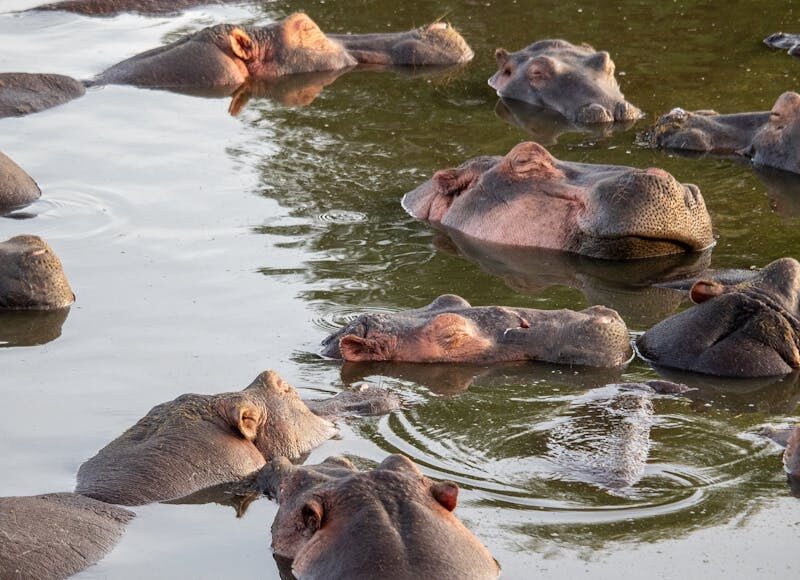
Where are the Best Locations for Hippo Hunting in Mozambique
Hippo hunts are available throughout the country, but like with all game hunting, some areas provide better hippo hunting trophies and are renowned for the numbers, and quality of hippos in the areas. The best time for hippo hunting in Mozambique is from May to July when the water temperatures are cooler and the animals are more active.
Finding your prize hippo may be as easy as a simple mokoro trip down a river and you may spot them basking in the sun on a river bank, or it could involve having to choose the best bull out of numerous animals in a river.
Lake Cahora Bassa
When mention is made of hunting hippos in Mozambique, the first location that comes to mind is Mozambique’s Lake Cahora Bassa. Situated in the country’s Tete province, it is the world’s fourth largest manmade lake, the lake is filled with natural coves and inlets, perfect for both crocodile and hippo hunts.
It is home to abundant wildlife, with a natural beauty that simply screams Africa. The area lends itself to great stalking opportunities, with the river banks providing excellent access to dangerous game, including hippos.
Zambezi River
The Zambezi River and Delta are perfect spots for hippo hunts. The delta includes lagoons and waterways for hunting hippos and with abundant wildlife species, it truly is the perfect big game hunting destination.
As mentioned, hippo hunting does take place throughout the country, with other popular spots for hunting hippo in Mozambique being the Save and Limpopo Rivers.
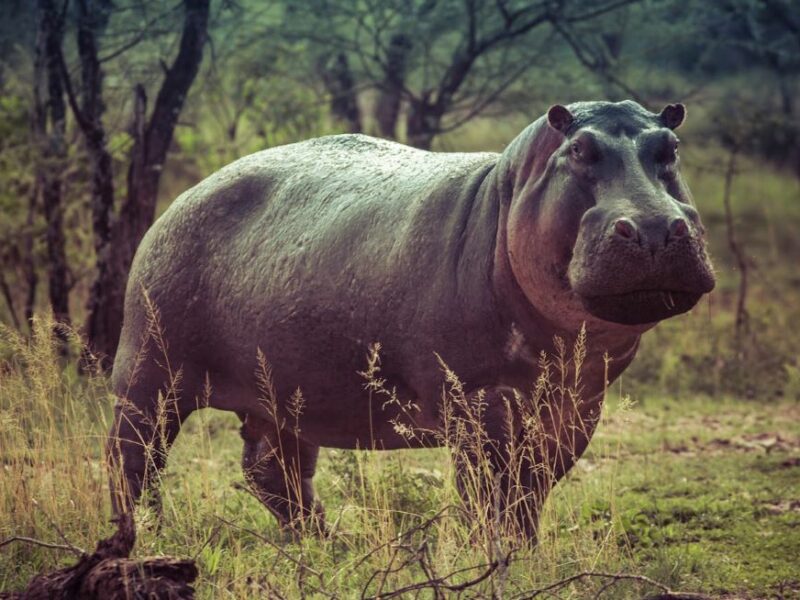
Hunting Methods & Calibers when Hunting Hippo in Mozambique
Mozambique’s diverse waterways pay homage to the African cultures that live there, as hunters embark on hippo hunts in mokoros. Hunters use these traditional canoes to stealthily creep up on the hippos, before engaging in a walk-and-stalk. What makes the hunt even more exciting – and dangerous? – is that hippos are known to often capsize these vessels, leaving hunters in life-threatening conditions.
Once the hippo has been shot, it will take a while for the hippo to rise to the surface, reconfirming that the hunting safari was, in fact, successful. Should the hippo not rise, it has either only been injured and undertaken an underwater escape, or you missed the shot completely and it’s long gone. Would this be a good time to stress the importance of good shot placement?
Another method when hunting hippos is the intercept the animal as it enters or leaves the water to graze. Hippos will spend a great deal of time in the water but will head to dry land at dusk to graze, returning in the early morning. This hunting method is also extremely dangerous, but very exciting, as a hippo will trample anything that deters it from heading to the water.
A minimum caliber of.375 is a legal requirement when it comes to hunting hippo in Africa. In this caliber use a minimum of 300 grain bullet. A solid bullet is required to ensure penetration. Out of water and up close taking a broadside shot, a .416 Rigby or 500NE is suggested to enter the heart for an accurate kill shot.
You can also hunt hippos using a bow, but a special permit is required, and it is considered exceptionally difficult. Speak to your African outfitter to arrange the necessary permits.
Shot Placement for Your Hippo Hunts
As with any dangerous game species, shot placement is critical and you must be sure of your shot before taking it. If not, wait for another opportunity. The first shot is of paramount importance, but the second and third follow-up shots are just as important, especially if the first shot was not 100% on target. The hippo is notoriously difficult to kill, and solid bullets are recommended for hippo hunts.
The choice of shot placement depends on the situation in which the hunter finds himself, but all options call for accurate, precise shooting. Things can go south very quickly, so be prepared.
Learn more about hippo shot placement.
Combination Hunts: Worth Considering
Consider a combination hunt should you be heading to enjoy a hippo hunting safari in Mozambique. A popular species to include when hunting hippos is the Nile crocodile, another member of Africa’s Dangerous 7. They are both found in the same habitats, allowing for an easy combination hunting safari.
Another option would be to include African plains game species with your hippo hunting safari. Mozambique offers numerous plains game species, including the Chobe bushbuck, zebras, impala, and wildebeest.
Alternatively, should you be hunting hippo at Lake Cahora Bassa, is to enjoy some tiger fishing. The area is renowned for its tiger fish and allows the hunter to change things up a bit and enjoy some fishing.
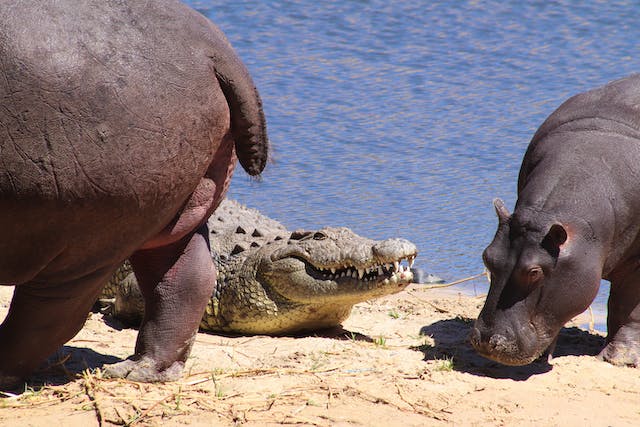
Hippo Hunts: Worth the Blood, Sweat, and Tears
Hunters have always looked for a challenge on an African hunting safari, and the hippo ticks the boxes in terms in terms of being extremely dangerous, aggressive, and challenging to hunt. The hunt itself is exciting, adrenaline-filled, and rewarding, with a few heart-stopping moments thrown in for good measure; like when the hunter waits to see whether the hippo will rise to the surface after being shot, making it a successful hunt, or not.
The question is, when will you be heading to Mozambique for your hippo hunting adventure?
Author: B. Hershensohnn
